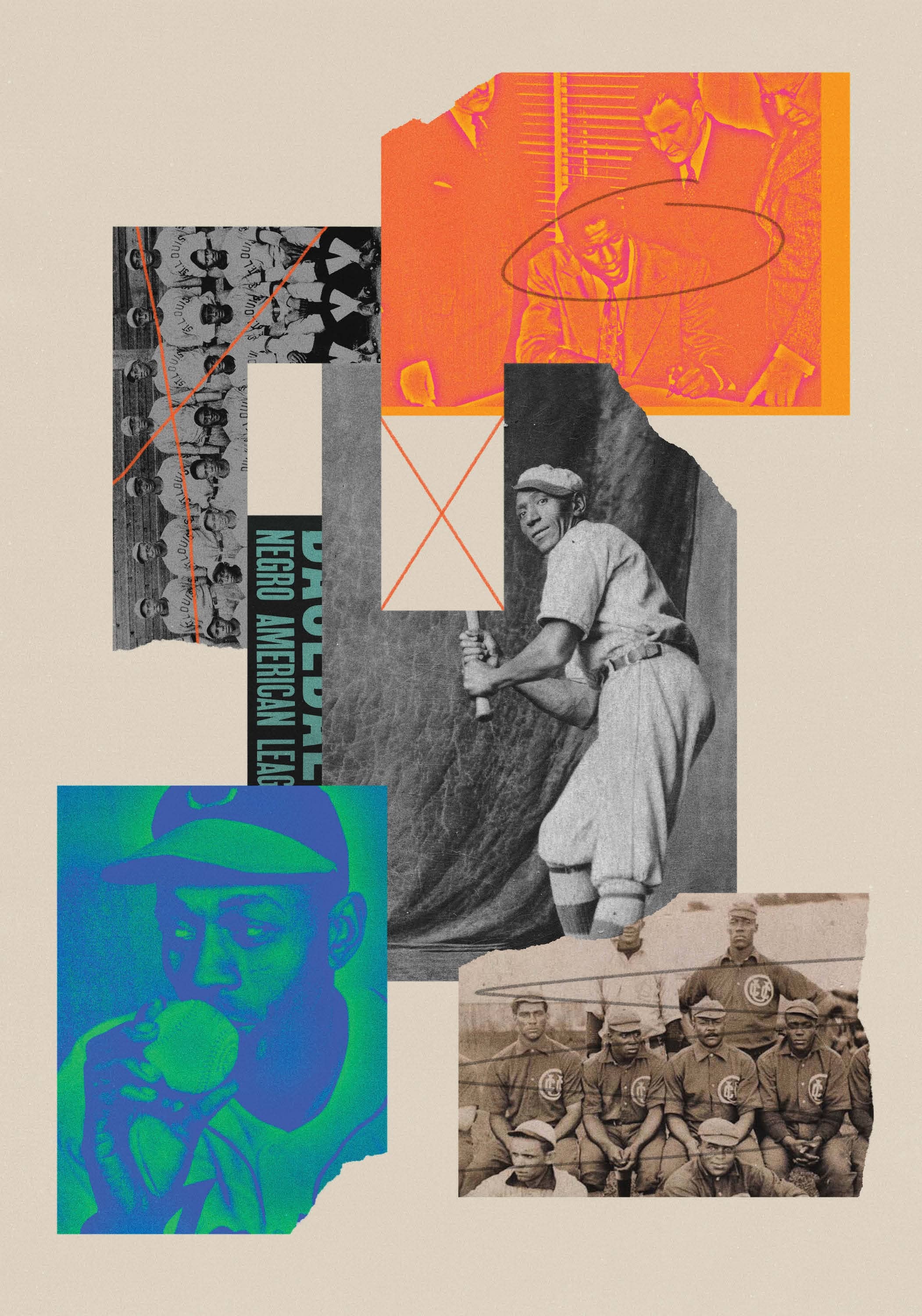
WHEN YOU WALK into the Negro Leagues Baseball Museum in Kansas City, Missouri, and pass through the turnstiles ushering you into the main exhibit, the first thing you see—before the photos and artifacts, the gameworn jerseys and yellowed newspaper clippings—is a wall of chicken wire. You peer through this fence, so similar to the ones that separated Black fans from white ones at segregated stadiums, and you see a baseball diamond, scaled-down, with 10 life-size bronze statues of players.
This, the Field of Legends, is the museum’s focal point, the central design feature around which the entire exhibit was built. When you see the field, the replica dugout, the figures cast in the images of some of the best ever to pick up a ball and glove, your jaw goes slack at its majesty. You want to stand next to Satchel Paige and practice your own windup. You want to crouch behind home plate next to Josh Gibson. You want to take a couple of practice swings next to Martín Dihigo, the Cuban-born Negro Leaguer who is enshrined in baseball halls of fame in five different countries.
But you can’t. Not yet.
The museum’s exhibit follows a chronological path through the history of Black baseball in America, starting in the days when Black men were first shut out of organized white baseball and forced to form independent teams that barnstormed around the country, and ending with the end of the Negro Leagues themselves. You can’t take the field until you know— really know—this story.
This story is from the November/December 2020 edition of Mother Jones.
Start your 7-day Magzter GOLD free trial to access thousands of curated premium stories, and 8,500+ magazines and newspapers.
Already a subscriber ? Sign In
This story is from the November/December 2020 edition of Mother Jones.
Start your 7-day Magzter GOLD free trial to access thousands of curated premium stories, and 8,500+ magazines and newspapers.
Already a subscriber? Sign In

FOOD FOR THOUGHT - CRIME OF THE CROP
Will GMOs harm my kids? Your pediatrician's response might not be grounded in science.

ECONUNDRUMS - CHATBOT QUACKS
AI was supposed to fix online health misinformation. Instead, it's making it worse.

WELL PLAYED
One man’s mission to make gaming a little less white

FIGHTING CHANCE
RUBEN GALLEGO'S BATTLE AGAINST KARI LAKE COULD DECIDE THE FATE OF THE SENATE-AND DEMOCRACY ITSELF. NO PRESSURE.

BLUUD MONEY
Tommy Alba could be a pain in the ass.

Become Ungovernable
The spectacular implosion of the Libertarian Party

Spoiler Alert
Third-party candidates never win national elections, but they can still have serious consequences.

THE DEMOCRACY BOMB
A day ahead of the third anniversary of January 6, President Joe Biden traveled to Valley Forge, Pennsylvania-where George Washington encamped during the Revolutionary War-before delivering what he described as a \"deadly serious\" speech framing the stakes of the 2024 election.

OH CRAP - SLUDGE REPORT
Can Maine lead the way to a future without forever chemicals?

JERSEY BOYS - AGE AGAINST THE MACHINE
Young voters are powering Rep. Andy Kim's challenge to Trenton's powers that be.